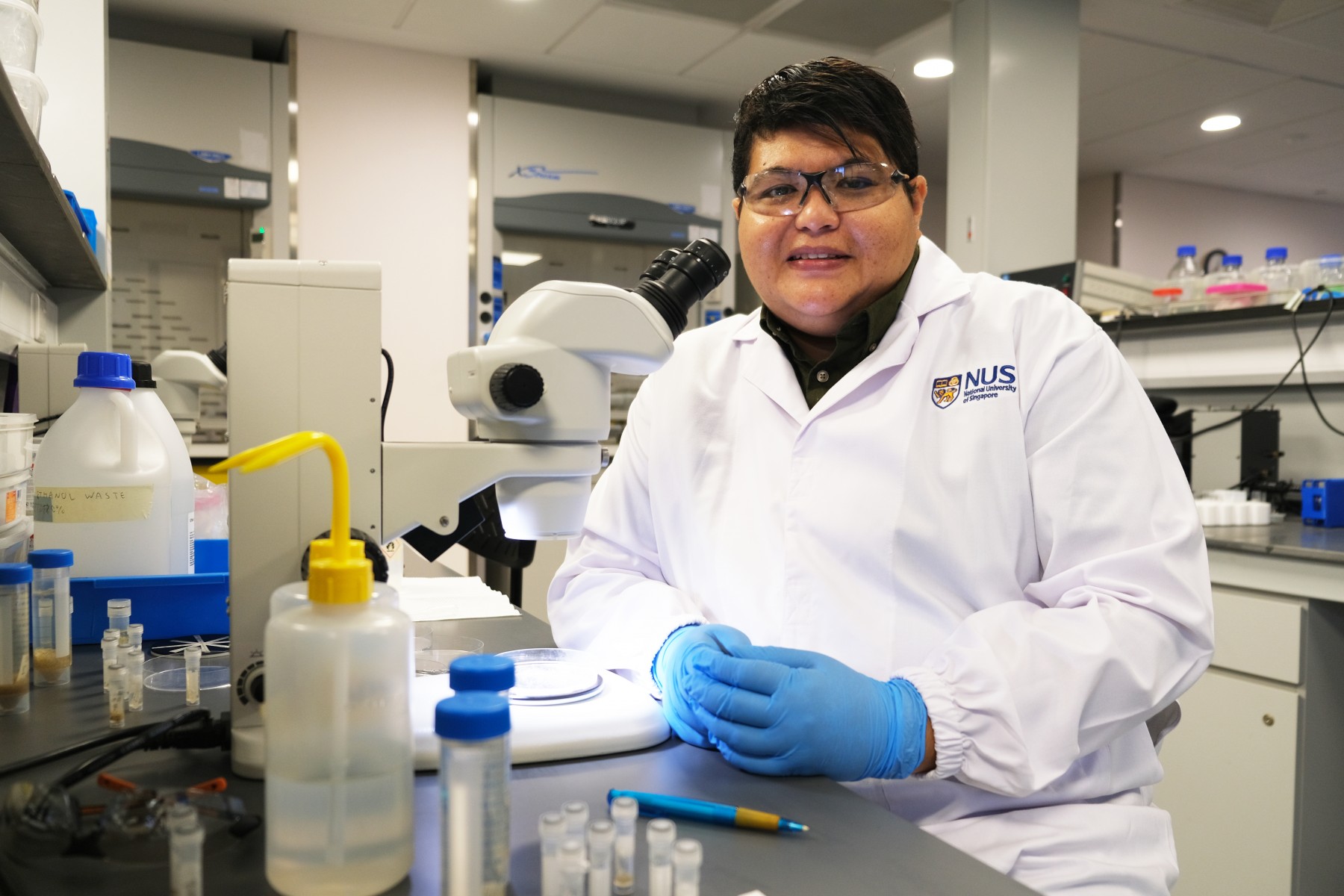A fascination with the deep
Dr Zeehan Jaafar, a lecturer at NUS Biological Sciences, loves the rich and mysterious oceans. She learnt at a young age that in addition to providing a home for the diverse organisms she loves, marine ecosystems also provide food, medicines, and perform important processes that may not be immediately noticeable, such as temperature and climate regulation.
Learning about nature
Dr Jaafar, whose students call ‘Dr Zee’, credits her parents with igniting her passion for nature, which continues to be her driving force as a scientist. In her formative years, they nurtured her interest in science and nature by providing her with books, magazine subscriptions, and enrolling her for outdoor courses. She spent much of her childhood exploring intertidal and coastal areas of Singapore and Malaysia.
Some of her earliest and fondest memories are foraging for clams with her late grandmother along the eastern coastlines of Singapore. She recalls how the first crab she caught at age six pinched her fingers, and instead of crying from the pain, she ran to her family to show them the beautiful critter, while the crab’s pincers were still attached to her fingers and drew some blood.
Serious science
As an undergraduate in NUS Biological Sciences, she took up a research project under the Undergraduate Research Opportunities Programme in Science (UROPS) to understand how urbanisation impacts coastal fish communities.
“One of the factors I examined for that study was the differences in day and night community composition of fishes. It was a really difficult project as I spent long hours by the coast,” she recalled.
She added, “Although it was gruelling, I learnt first-hand through observing the mangrove and beach habitats where I carried out the research. I then went on to carry out a final-year undergraduate project on marine ecology, and the rest, as they say, is history!”
Dr Jaafar obtained her PhD in the same Department on a scholarship, and did a postdoctoral stint at the Smithsonian Institution’s National Museum of Natural History in the US. She returned to Singapore in 2017 and re-joined NUS Biological Sciences as a lecturer.
Protecting marine habitats and animals (big and small)
The foci of Dr Jaafar’s work is the ecology and evolution of marine fishes to further understand how marine areas and organisms can be better managed and conserved. At present, she and a team of collaborators are building the first fish-DNA library for Singapore. This includes collecting adult and larval fish samples around Singapore. She is also carrying out experiments to understand parameters that affect the distribution of marine organisms in natural and human-mediated structures in the oceans.
“Although at nascent stages of the study, we observed that lunar cycles affect the abundance and diversity of plankton we sample. This is interesting, and in line with what we understand about zooplankton behaviour from studies elsewhere,” she said.
Her team uses light traps and double bongo nets to collect samples of zooplankton, working at night on a boat off the southern islands of Singapore.
In the course of her research, she had her fair share of interesting encounters and challenges.
“There are no field trips without interesting stories! There was a time when we were caught in a really bad storm in the middle of the sea while on an expedition. The waves were huge, but thankfully, our small dinghy made it back to the main research vessel,” Dr Jaafar recounted.
Spreading the message of conservation
For Dr Jaafar, the most challenging part of her work is to translate research findings into information relevant and useful to society. To this end, she engages in community work to promote awareness for marine-related issues, and provides advice on ground-up marine conservation initiatives.
“By working on these ecosystems, I hope to contribute, even in a small way, to help us better understand, manage, and conserve these ecosystems and their components,” she explained.





